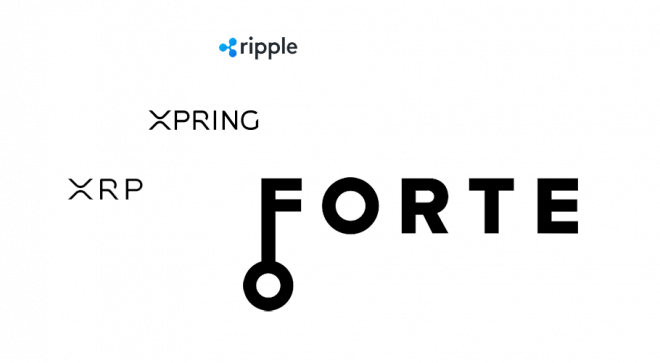“Blockchain technologies’ key innovations unlock vast potential for nearly all forms of digital interaction. Gaming is a $140 billion global industry driven predominantly by digital micro-transaction economies, which we believe will benefit immensely from the integrity and resilience of blockchain technology,” said Brett Seyler, Chief Platform Officer, Forte. “The industry needs solutions that can support these economies at scale with cross-chain interoperability.”
Forte’s technology stack includes components designed in close collaboration with Ripple, namely leveraging the open-source Interledger Protocol with XRP serving as a base pair settlement and the container-based hosting solution Codius supporting seamless transactions across blockchains. By focusing on cross-chain interoperability out of the gate, Forte is setting the foundation for long-term, sustained consumer adoption of blockchain technology. Forte’s platform components blend this supporting technology behind easy to integrate components for game developers.
The Forte team is comprised of game industry veterans that have built top grossing games globally and developed cutting edge game technology platforms. The founding team hails from industry leading game companies such as Kabam, Unity, and GarageGames.
Forte is actively funding game developers that meet its criteria. “We’re excited to connect with developers who are running live game economies with tens of thousands of daily active users or more and have an active interest in using blockchain technology to improve their business,” said Allen Ma, VP Partnerships, Forte.
“We are thrilled to partner with such a world class team of game industry veterans. Both Forte and Ripple have a shared belief that blockchain technology will have a massive impact on games, and that providing tools that are easy-to-use, chain agnostic and interoperable is a necessary step in driving scale consumer adoption,” said Ethan Beard, Senior Vice President of Ripple’s Xpring.
The history of the games industry is one of new business models and mass market adoption as technology platforms are invented. From specialty pay-per-play arcade machines, to retail boxed games with the advent of PCs and home consoles, to downloadable games with the advent of the internet, to free-to-play games with the advent of cloud technology and now billions of users with the advent of mobile free-to-play experiences, games have adapted innovative technology platforms and business models to grow from a $1B industry 30 years ago, to a $140B behemoth today. Blockchain technologies present the next vector of innovation and enables new business models and game economies.




